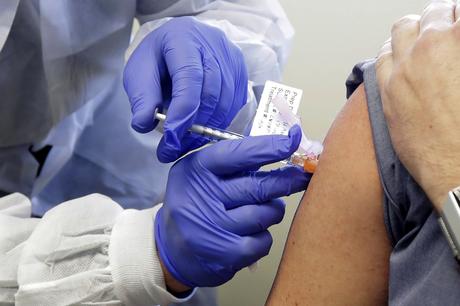
(Washington) The vaccine developed by the American biotech Moderna in partnership with the National Institutes of Health (NIH) triggered a “robust” immune response and prevented the replication of the virus in the lungs and noses of monkeys, according to results published Tuesday.
Posted on 28 July 2020 at 17 h 15
France Media Agency
It is one of the two western vaccines, along with that of the University of Oxford / AstraZeneca, to have started large-scale trials, on thousands of human participants, known as phase 3. The government of Donald Trump has invested nearly a billion dollars to support its development.
Seven of the eight monkeys vaccinated in this study, then deliberately exposed to the coronavirus four weeks later, no longer had detectable replicating virus in the lungs two days later, and none of the eight had virus in the nose, according to results published by the New England Journal of Medicine.
Scientists had previously found that vaccination, in two doses separated by 28 days, not only caused the production of antibodies against the coronavirus, but also of T cells essential for the immune response.
“This is the first time that an experimental vaccine against COVID – 19 tested on non-human primates demonstrates its ability to produce rapid viral control in the upper respiratory tract ”, welcomed the NIH in a press release.
The scientists note by comparison that the Oxford vaccine (based on an adenovirus, while that of Moderna uses messenger RNA technology) had no effect on the amounts of virus in the monkey nose.
Reducing the amount of virus in the lungs would make the disease less virulent in the patient, while reduction in the nose should cause a person to spread the virus less around them.
But only the phase 3 trials, currently in progress, will make it possible to verify whether one and / or the other of the vaccines protects humans. We will compare the rate of contamination in volunteers who received a placebo to those who were actually vaccinated. Results are possible from September for the Oxford / AstraZeneca vaccine, according to the boss of the laboratory, and perhaps from October or November for the US, according to the boss of Moderna.

